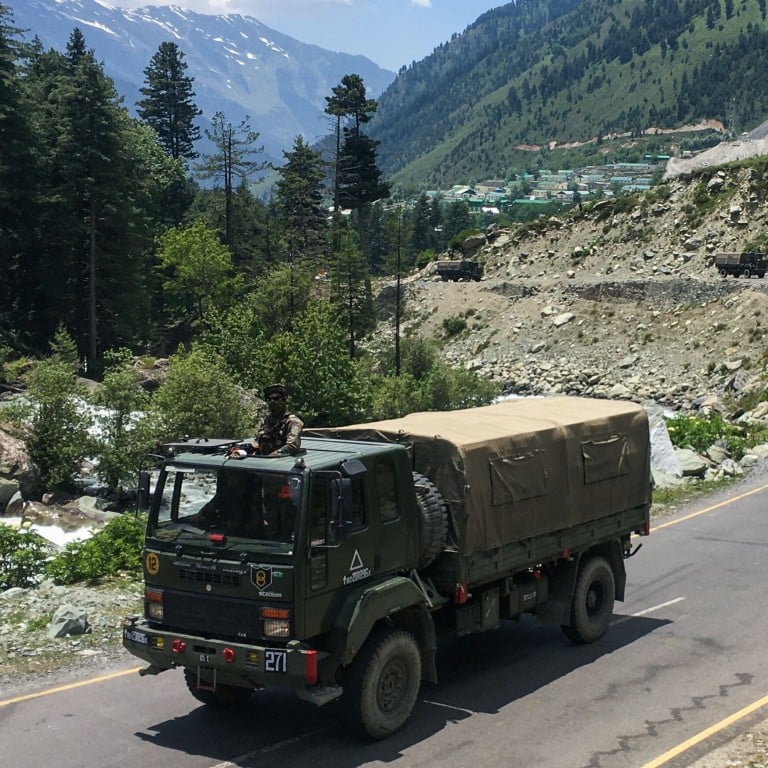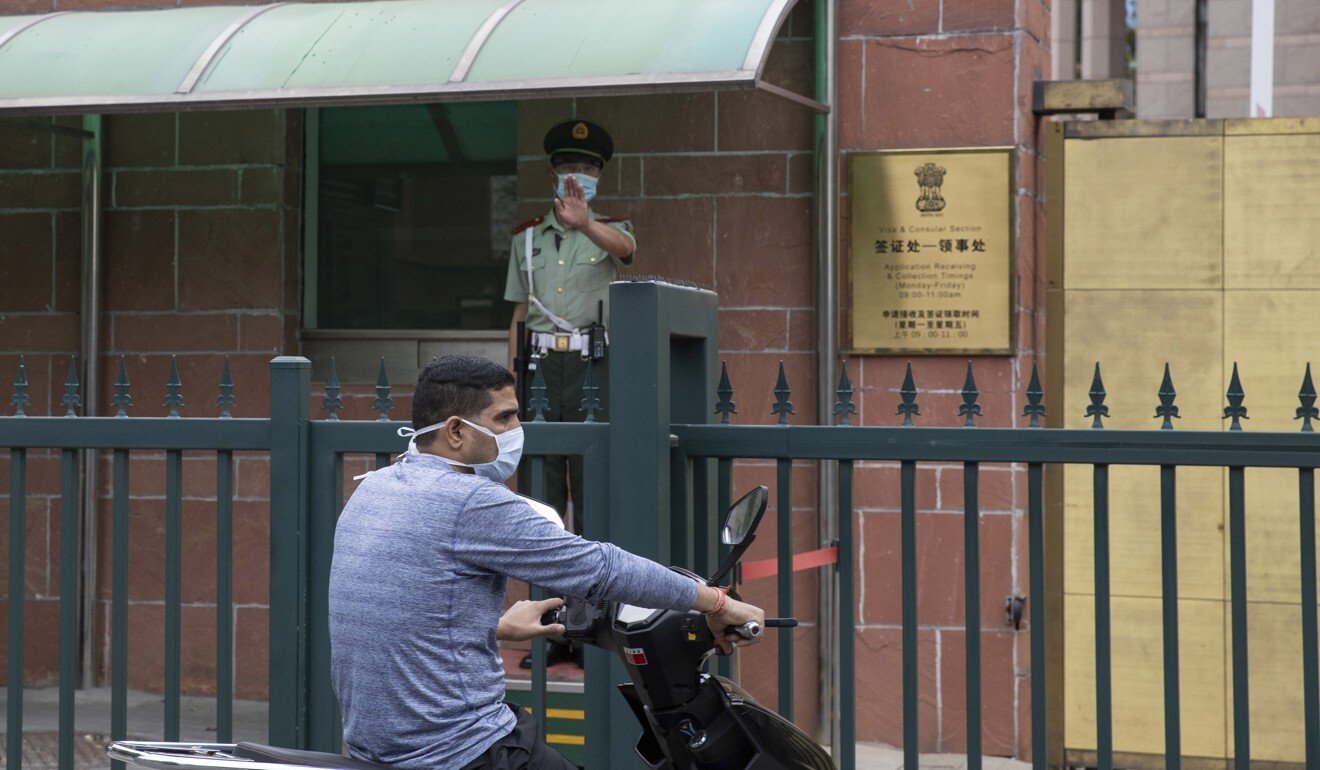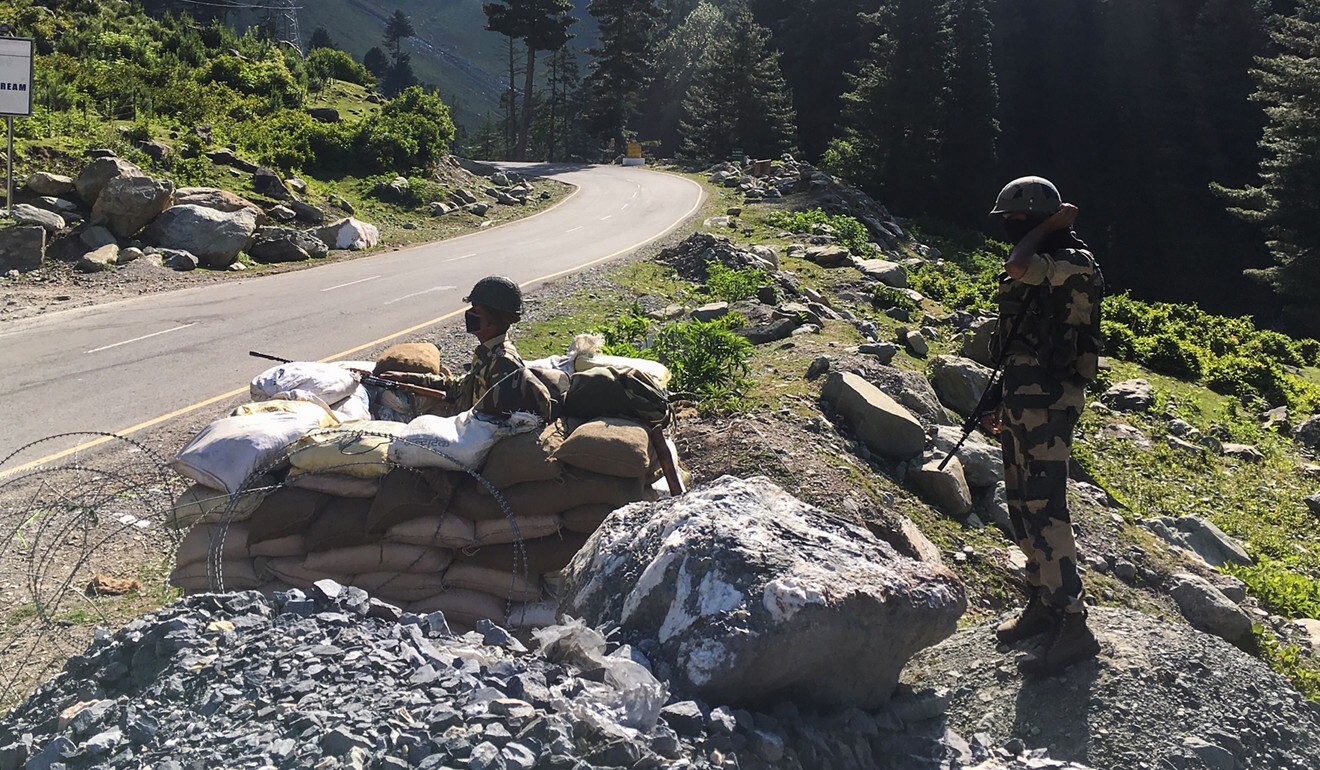
China, India blame each other for Monday’s deadly clash
- ‘India should not make wrong calculations on the situation, and not underestimate China’s determination to maintain its territorial integrity,’ Chinese Foreign Minister Wang Yi says
- Chinese side ‘took premeditated and planned action that was directly responsible for the resulting violence and casualties’, India’s External Affairs Minister Subrahmanyam Jaishankar says
Chinese Foreign Minister Wang Yi on Wednesday accused Indian troops of provoking the border clashes on Monday that left at least 20 people dead, while New Delhi said Chinese soldiers were “directly responsible” for the aggression.
In the highest level communication since the deadliest conflict in the region for more than four decades, Wang told his Indian counterpart Subrahmanyam Jaishankar over the phone that the two sides should resolve their tensions through dialogue and keep the border safe, the Chinese foreign ministry quoted him as saying.
India’s external affairs ministry said Jaishankar conveyed Delhi’s protest against the fighting “in the strongest terms” and said the incident could have a “serious impact” on the countries’ relationship.
“The Chinese side took premeditated and planned action that was directly responsible for the resulting violence and casualties,” he was quoted as saying.
However, the two ministers agreed to handle the situation in a “responsible manner” and not escalate tensions any further.
The call was the latest move to de-escalate tensions after at least 20 Indian soldiers were killed in the clash in the Galwan River alley. China said its troops also suffered casualties but it has not released numbers.
“I would like to assure the country that the sacrifice of our soldiers will not be in vain, he said. “For us, the unity and integrity of the country is the most important … India wants peace but is capable of giving a reply if provoked.”
In his call to Jaishankar, Wang said Indian troops had crossed the Line of Actual Control (LAC) in breach of an earlier consensus to de-escalate tensions in the region, which resurfaced early last month.
Indian soldiers had been provocative and attacked Chinese troops who were in the area only to liaise, the foreign ministry statement quoted him as saying.
“China again expresses strong protest to India and demands the Indian side launches a thorough investigation … and stop all provocative actions to ensure the same things do not happen again,” he said.
“India should not make wrong calculations on the situation and not underestimate China’s determination to maintain its territorial integrity.”
The two countries should focus on development and mutual respect, Wang said.
“Both sides should resolve the dispute through dialogue, and keep the border safe and tranquil.”

Earlier on Wednesday, Beijing said Chinese and Indian troops were working to manage tensions along the border.
“Both the Chinese and Indian sides are committed to solving our differences through dialogue,” foreign ministry spokesman Zhao Lijian said.
China did not take responsibility for causing the latest clash, which happened on the Chinese side of the LAC, Zhao said, adding that Indian troops broke their promise and transgressed onto the Chinese side.
He did not respond to questions about how many Chinese casualties there had been, but said the situation along the border was “stable” and “manageable”, and that the two countries had maintained close communication through military and diplomatic channels.
India’s external affairs ministry said on Monday that the stand-off began after Chinese troops “departed from the consensus to respect the Line of Actual Control in the Galwan Valley”.
Indian activities had remained “within the Indian side of the LAC”, a spokesman said.
The deaths are the first in four decades of simmering conflict along the 3,500km (2,200-mile) LAC that separates the two nuclear powers.
India’s Defence Minister Rajnath Singh said the loss of soldiers in Galwan was deeply disturbing and painful.
“Our soldiers displayed exemplary courage and valour in the line of duty and sacrificed their lives in the highest traditions of the Indian Army,” he said.
“The nation will never forget their bravery and sacrifice. My heart goes out to the families of the fallen soldiers. The nation stands shoulder to shoulder with them in this difficult hour. We are proud of the bravery and courage of India’s ‘bravehearts’.”
India initially reported that just three soldiers had been killed in the clashes, but said later that 17 others had succumbed to their injuries in the sub-zero temperatures.
Military officers said the death toll could still rise as the clashes happened at night on difficult terrain along Patrol Point 14 which features narrow ridges overlooking the river.
Indian soldiers went to liaise with Chinese troops about disengagement but were attacked by soldiers armed with clubs, stones and iron rods, they said.

Domestic pressure is growing on the Modi government for a response to the single worst tragedy for the country’s armed forces in a non-war situation since 1967.
The Confederation of All India Traders said it would ask its 70 million members to boycott Chinese products, while its general secretary Praveen Khandelwal said it was planning to ask the government to look at Chinese investment in Indian technology start-ups.
“Various Indian start-ups have become Indian giants riding on Chinese money,” he said. “The government must bring in a blanket ban on Chinese investments.”
Modi has called for a meeting on Friday of the leaders of all political parties with parliamentary representation to discuss the border clashes. He will also address the nation on Sunday, but he is expected to focus on the occasion of International Yoga Day.
Although the latest clash was the deadliest in decades, and both sides have accused the other of causing it, neither Beijing nor New Delhi wants to stir up tensions or nationalistic sentiment at home. China’s state media have been largely silent on the issue.
Cheng Xizhong, a visiting professor at China’s Southwest University of Political Science and Law, said Beijing did not want to see a repeat of the latest clash or the 1962 armed conflict between the two countries.
“What we want is to continue to maintain peace and tranquillity in the border area,” he said.
“However, India must understand that if it attempts to … implement its ‘advance policy’ and encroach on Chinese territory in order to establish its so-called Ladakh Central Territory on Chinese territory, Chinese border guards … [will] counter that.”
Additional reporting by Maria Siow


